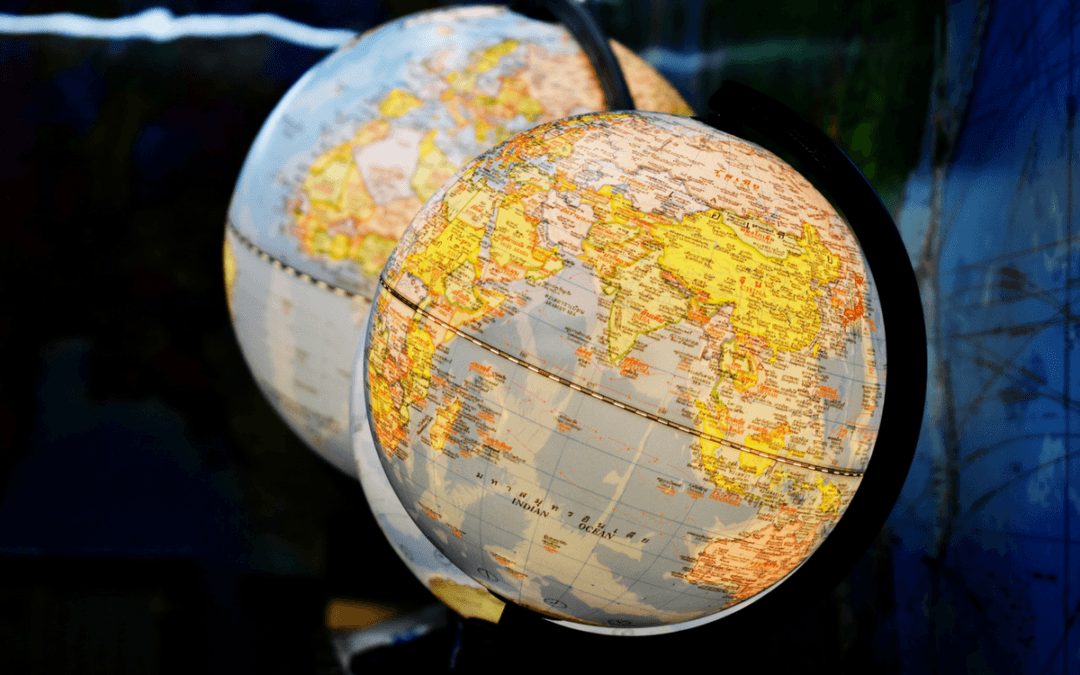Every business, large or small, at some point has to decide if they want to expand into other markets or other countries. There are pros and cons to each side. Increased market share and higher profits look great, but do you really want to deal with shipping and customs enforcement in various countries?
What exactly does going global mean?
At one point in time in the not-too-distant past, going global meant different things to different people. Is it the same as international (working or selling outside the home country) or multinational (having representation in many nations).
According to Angel Cabrera, co-author of Being Global: How to Think, Act and Lead in a Transformed World, going global is a state of mind.
He writes:
“The global mindset allows leaders to connect with individuals and organizations across boundaries. Their entrepreneurial spirit equips them to create value through those connections. And their citizenship drives them to make a positive contribution to the communities they engage with. Connecting, creating, and contributing are the three core tasks that make or break a global leader.”
And let’s be honest, we are all global in some way, shape or form. World events such as weather, geopolitics, diseases and technology just to name a few all have an impact on business, large and small, local and worldwide.
As an example, Royal Caribbean Cruise Lines (who I worked for) about 15 years ago decided they wanted to have a presence in the emerging China market, whether for Chinese guests to take a cruise, or to have international guests fly to China and leave on a cruise from one of their ports. They started small with one ship, but over time, working with government agencies and foreign travel agents, have built a significant presence in Asia with up to five ships, depending on the time of year.
In the beginning, South Korea was a desired port on the itinerary, but now, because of feuding between the Chinese and South Korea governments, South Korea had to be dropped because Chinese citizens were not allowed in South Korea. Royal Caribbean had to redesign all-new itineraries if they wanted to welcome Chinese guests onboard. Hopefully, the dispute will be resolved shortly, which will mean new itineraries once again. Flexibility is key working in foreign countries.
If you are interested in going global, you need to ask yourself a few questions:
- Will people outside the country want to buy my product or service?
- Will selling my product or service require consumers to be educated in some way?
- Are there cultural differences I need to be aware of which might impact the success of what I am trying to do?
- Will a language barrier affect the success?
- Are customer service standards the same the world over? What about product returns?
Your job is to understand how going global will affect your organization and to prepare accordingly. If you are thinking of getting into a certain country, try to attend trade shows and conferences in that country.
If you’re in the United States, think about Canada or Mexico before trying to figure out Italy or South Africa.
According to David Goldsmith, author of Paid to Think, here are four steps to expand global awareness:
- Receive Global Information –Expand your breadth and width of knowledge in these four foundational categories: humans/living creatures, physical environments, governances, and technologies.
- Become More Globally Aware – Assimilate the information you have gathered and continually absorb about the universe around you and increasingly utilize this raw material to connect dots, which will create new knowledge and greater global awareness.
- Develop a Broader Perspective –Direct your and your colleagues’ attention to these areas whenever you’re ideating to make improvements: individuals and groups within or outside your organization, your organization and others’, you and other communities, territories, countries, and regions, as well as the world at large. Look for both differences and similarities among these categories of global awareness.
- Apply New Awareness – Utilize the newfound information as you address all of your organization’s needs both internally and externally. Ultimately, you will find that you have improved your ability to make strategically advantageous decisions overall.
Expanding your company around the world is an exciting decision and can lead to unprecedented growth. However, there are drawbacks you need to know about before diving right in. Starting small and getting a keen awareness before going global is the right way approach. Ask many questions of your external and internal stakeholders. You may get answers from sources you didn’t know you had. And that’s what being a global leader is all about.
Photo by Duangphorn Wiriya on Unsplash









